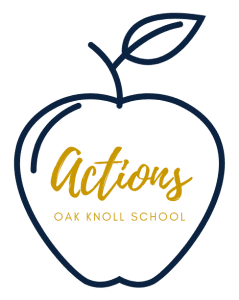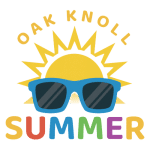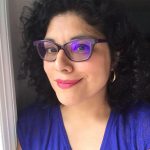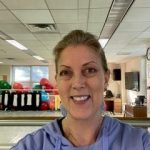Q&A: Sean Melican, Upper School Chemistry Teacher
 Actions is a new editorial feature from Oak Knoll School of the Holy Child. Each month we will spotlight the dedicated faculty and staff across the PK-12 campus who make a difference in the lives of OKS students and the life of the school. This week, we feature:
Actions is a new editorial feature from Oak Knoll School of the Holy Child. Each month we will spotlight the dedicated faculty and staff across the PK-12 campus who make a difference in the lives of OKS students and the life of the school. This week, we feature:
Sean Melican
Upper School Chemistry
Q: As an Upper School science teacher, can you talk about how our curriculum prepares our older students for a strong science foundation that they need to succeed in high school and beyond?
A: Our science curriculum is intentionally designed to follow student growth. Ninth-grade students take physics, which is an easy-to-visualize science. This is followed by chemistry, which is more abstract, and then biology, which utilizes many of the concepts in chemistry. While students are only required to take these three courses, most choose to take a fourth-year science, either an AP class or Marine Science and Anatomy and Physiology. In each science, students not only receive a solid foundation in the theoretical and practical aspects, but are asked to think more deeply about the why.
Q: What has been your favorite project that you have worked on with your students and why?
A: This is easy! It’s our BIPOC in Science project. Originally conceived as a project for students to learn about BIPOC scientists that have been historically forgotten, it has grown – thanks to student interest – to include current scientists. Students pick a BIPOC scientist to research, then write an essay on why that person should be TIME magazine’s person of the year. It grew out of the recognition that almost every scientist named in our histories of that science or whose name has been given to a concept or process is almost always white and male. Our intent was to disrupt this narrative and to develop a broader understanding of the effects of racism on science, which is generally considered ‘objective.’
Q: What, in your opinion, does Oak Knoll School do differently that sets us apart from other schools, and why is this important?
A: I think Oak Knoll does an excellent job of educating the whole child. While we certainly have strong academics, we also have opportunities in sports at all levels; the arts, including theater, dance, and music; a wide variety of clubs; and opportunity for leadership. I think it’s safe to say that many if not all of our students engage in more than one non-academic pursuit. Secondly, while we have a long way to go, Oak Knoll has embraced its role in educating students and nurturing a culture that prioritizes diversity, equity, inclusion and justice in our students, faculty, and curriculum. This is not only our responsibility as humans but a main pillar of the school’s founding and mission. Learn more about Oak Knoll’s DEIJ efforts here.
Q: Hands-on learning is so important for all of our students. Can you talk a bit about how you incorporate hands-on learning in your classes? Can you give us a few examples?
A: In chemistry, we normally do labs with most of our units. These incorporate the concepts we are learning as well as techniques such as how to use a balance, a burette, or a graduated cylinder. Additionally, in some classes we incorporate some a deeper understanding by having the students analyze sources of error. Finally, we do our best to make sure that not only are all of these requirements satisfied, but that it is visually stimulating as well. It’s not terribly exciting to mix two clear liquids and get another clear liquid.
Q: When your students graduate from Oak Knoll, what do you want them to remember?
A: I want them to remember that science is for everyone. Too often, there is a belief that science and scientists are ‘elite’ and that people are either ‘science people’ or not. I would like each student to have found some aspect of science that appeals to them regardless of whether they pursue science later in life. Finally, I would like them to be scientifically literate, able to distinguish good data from anecdotal evidence as well as to appreciate the beauty and joy of science.
Sean Melican has been teaching at Oak Knoll School for 10 years. He has a bachelor’s from Colgate University and a master’s from University of St. Joseph in Connecticut.







